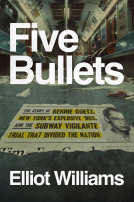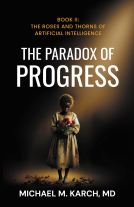
Dresden
A Survivor's Story
by Victor Gregg with Rick Stroud
This title was previously available on NetGalley and is now archived.
Send NetGalley books directly to your Kindle or Kindle app
1
To read on a Kindle or Kindle app, please add kindle@netgalley.com as an approved email address to receive files in your Amazon account. Click here for step-by-step instructions.
2
Also find your Kindle email address within your Amazon account, and enter it here.
Pub Date Feb 13 2015 | Archive Date Feb 15 2015
Bloomsbury USA | Bloomsbury Reader
Description
In 2011, Victor Gregg published Rifleman about his time on the front line in World War II, but the experience of writing this memoir sparked long buried memories of his experience in Dresden.
In four air raids between 13 and 15 February 1945, 772 Lancaster bombers of the British Royal Air Force and 527 of the United States Army Air Forces dropped more than 3,900 tons of high-explosive bombs and incendiary devices on Dresden. The resulting firestorm destroyed 15 square kilometres, or 6 square miles, of the city centre. 25,000 people, mostly civilians, were estimated to have been killed. Post-war discussion of whether or not the attacks were justified has led to the bombing becoming one of the moral issues of the Second World War.
An established soldier turning his uniform to the 10th Parachute Regiment in 1944, Victor Gregg was captured at Arnhem where he volunteered to be sent to a work camp rather than become another faceless number in the huge POW camps. With two failed escape attempts under his belt, Gregg was eventually caught sabotaging a factory and sent for execution.
Gregg’s first-hand narrative, personal and punchy, sees him through the trauma and carnage of the Dresden bombing. After the raid he spent five days helping to recover a city of innocent civilians, thousands of whom had died in the fire storm, trapped underground in human ovens. As order was restored his life was once more in danger and he escaped to the east, spending the last weeks of the war with the Russians.
Harrowing and vivid, Gregg draws us in to the heart-wrenching, often futile attempts to save lives, and the tentative friendships and near-misses along the way.
Victor Gregg was born in London in 1919 and joined the army in 1937, serving first in the Rifle Brigade in Palestine and North Africa, notably at the Battle of Alamein, and then with the Parachute Regiment, at the Battle of Arnhem. As a prisoner of war he survived the bombing of Dresden to be repatriated in 1946, and now lives in Winchester. The story of his adult years, Rifleman: A Front-line Life from Alamein and Dresden to the Fall of the Berlin Wall, also co-written with Rick Stroud, was published by Bloomsbury in 2011.
Rick Stroud is a writer and film director. As well as working with Vic Gregg on Rifleman he is the author of The Book of the Moon and The Phantom Army of Alamein: How the Camouflage Unit and Operation Bertram Hoodwinked Rommel. He lives in London.
Advance Praise
No Advance Praise Available
No Advance Praise Available
Marketing Plan
No Marketing Info Available
No Marketing Info Available
Available Editions
| EDITION | Other Format |
| ISBN | 9781448211456 |
| PRICE | £2.32 (GBP) |
Average rating from 9 members
Featured Reviews
 Rosemary S, Librarian
Rosemary S, Librarian
During air raids by both the RAF and the USAF, the city of Dresden was laid to waste. Six miles of city and 25,000 people, mostly civilians were killed. After the war was over, these actions would be questioned. Were they really necessary? Victor Gregg was captured in Arnhem and rather than go to a POW camp, he volunteered to go to a work camp, but after two escape attempts and an attempt at sabotaging a factory, he was sentenced to die. Instead he was caught up in the destruction of Dresden, where he did his best to help those who had been injured. Here, he tells the harrowing tale of what it was like to be in the city in what must surely have felt like the end of the world.
Readers who liked this book also liked:
Scott Michael LeRette
Biographies & Memoirs, Christian, Parenting, Families, Relationships
Jeff Fulmer
General Fiction (Adult), Politics & Current Affairs, Religion & Spirituality
Michael M. Karch, MD
Computers & Technology, Nonfiction (Adult), Professional & Technical


















